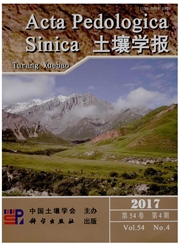

 中文摘要:
中文摘要:
农业生产中氮肥的施用是影响全球氮素循环的一个重要因素,在促进作物增产的同时,也对生态环境产生了重要的影响。由于铵态氮肥在旱地中很容易经过硝化作用转变为硝态氮,其中一小部分为植物所吸收,而大量的硝态氮被淋失,或经反硝化作用进入大气,造成土壤氮素严重损失。自然界中一些植物的根系能够分泌抑制硝化作用的物质,被称为生物硝化抑制剂,因而可以显著提高土壤氮素利用率。本文阐述了有关生物硝化抑制剂的由来、分泌调节、作用机制及其应用潜力,并探讨了其在农业生产中氮素高效管理等方面的应用前景。
 英文摘要:
英文摘要:
Application of nitrogen fertilizers in agricultural systems is one of the most important factors influencing the global nitrogen cycle. Nitrogen fertilizers can improve crop production, but also have much influence on ecological environment. Nitrogen fertilizers in ammonium form ( NH4 ) is easily transferred into nitrate form ( NO3- ) in dry land by nitrification. However, only a small portion of the formed NO3- can be taken up by plants, while a large amount will be leached or released into the air through denitrification, which results in severe nitrogen loss. In nature some plants can excrete through their roots some compounds that have the function of inhibiting nitrification and thus can be characterized as biological nitrification inhibitor (BNI) , which may significantly improve nitrogen use efficiency in soil. This review illustrates the origin, excretion and regulation of the substances, mechanisms of their function and potential of their application, and also discusses prospects of their application to high efficiency management of nitrogen in agricultural systems.
 同期刊论文项目
同期刊论文项目
 同项目期刊论文
同项目期刊论文
 Spatial-temporal analysis of zinc homeostasis reveals the response mechanisms to acute zinc deficien
Spatial-temporal analysis of zinc homeostasis reveals the response mechanisms to acute zinc deficien 期刊信息
期刊信息
